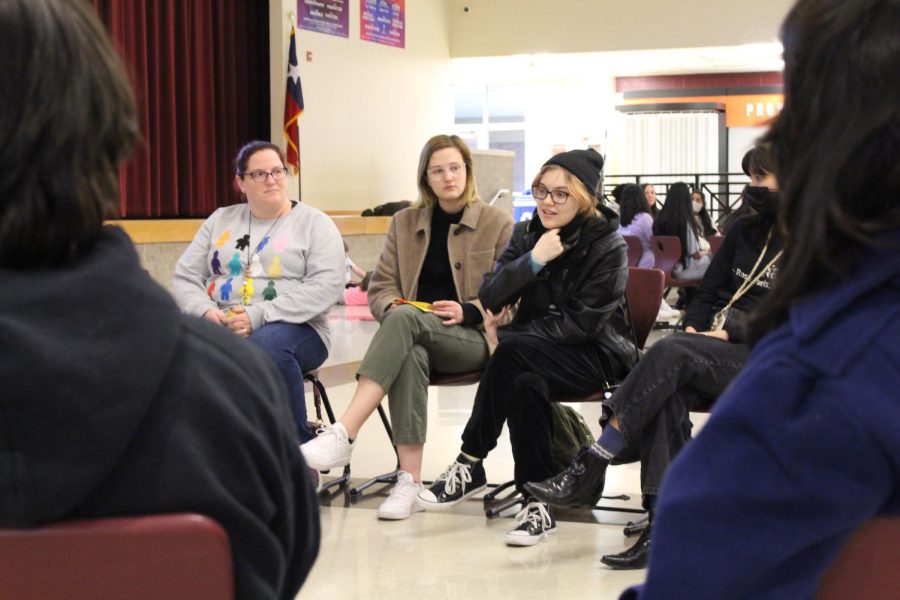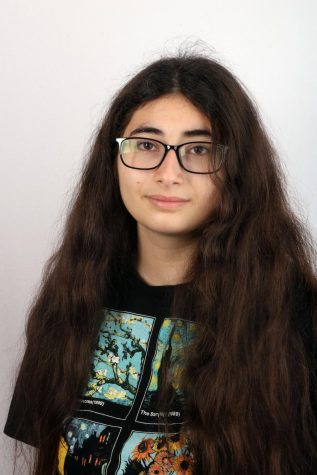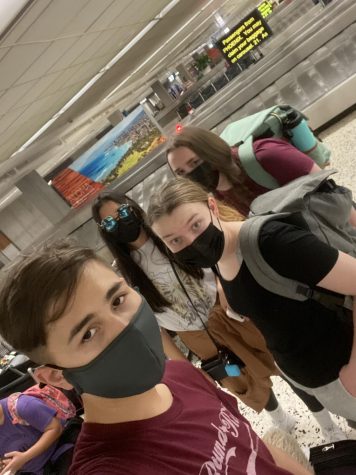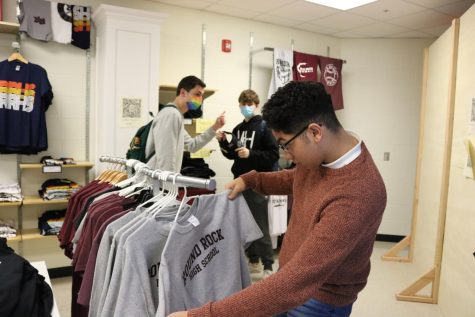Student Council hosts forums to combat discrimination
The school day has ended yet the cafeteria is still busy with chatter. In the cafeteria, students are organized into small circles. They each take turns listening, sharing out, and understanding one another as they discuss the impact of gender discrimination and their own personal experiences with it. They are each uniquely different in appearance and experience, yet united in the need to feel a little less isolated. Occasionally, some will glance back at the projector hanging over the stage. The words ‘No Place For Hate with Girl Up’ shines against the projector screen.
“It was very interesting to see everyone on an equal plane talking about things they were passionate about, interested about, or wanted to learn more about,” student body producer Teja Meka said.
Within the past few weeks, Student Council partnered with different clubs to highlight the experiences and prejudice different groups of minorities face in their daily lives. This is the start of a movement to create a more inclusive and accepting environment for every student to feel welcome at Round Rock High School.
“We want to be able to represent a lot more clubs at this school,” Meka said. “We want them to get involved with this event.”
Out of the 3600 students that attend Round Rock High School 48.8% of them are white, according to the student demographics on the RRISD website. Because of this, Student Council wanted to provide an outlet for minority students’ voices to be heard. Meka and student body at-large representative Niranjana Nair decided to create forums to discuss various social topics that may be deemed controversial within a regular classroom setting. The goal for these forums is to shed light on how experiences related to these topics can affect a person’s identity. Recently they have hosted a Gender Discrimination Forum with Girl Up, Gender and Sexuality Forum with GSA, and Race and Ethnicity Forum with BSU. The forums discussed and identified more mature topics, such as menstrual cycles, in order to break the stigma and taboo against normalizing public discussions on these experiences.
“Our school can be a little hush-hush with these topics,” Nair said. “They’re very much things that are obviously present, but people don’t want to talk about them in the open.”
Student Council provided a list of starting topics and questions to establish a sense of comfortability by easing participants into the discussion. Following the prompts was not mandatory, as Student Council encouraged the participants to provide different perspectives and ideas during the discussion.
“Sometimes the discussions spiraled,” Meka said. “They went somewhere completely different. Somewhere completely unexpected. That was amazing.”
With the help of these forums, Student Council hopes that it will give Round Rock High School the opportunity to be recertified in the No Place for Hate program. No Place for Hate is a movement that provides students and educators the resources to create an anti-prejudice and anti-bullying environment. The goal of the program is to provide students with a safe and welcoming learning environment by allowing students to lead discussions highlighting discrimination and embracing societal differences. It has been three school years since RRHS received a No Place for Hate certification. Upon receiving certification, Student Council plans to continue using these forums as a catalyst for greater discussions highlighting the effects of discriminatory behaviors and removing the stigma against discussing more mature topics at school.
“We wanted to focus on being more inclusive in terms of demographics and identity,” Nair said. “Having the forums was an opportunity for people to discuss that.”
Currently the forums are being hosted in the 1100 cafeteria. Student Council is discussing the possibility of moving the location of future forums to the 700 cafeteria or a lecture hall to create a more intimate environment for the participants. Hosting these events in a more private setting will also allow Student Council to focus on more sensitive subtopics within the realm of identity and discrimination without participants feeling self-conscious of bystanders walking by during the more vulnerable sections of the forums.
“Having an opportunity for a safe discussion is something we want to provide,” Nair said.
In the future, Student Council plans to introduce different inclusivity-focused events, such as a Culture Day, to provide more opportunities for the students to celebrate and learn about the different cultures that make up the student body.
“This is our first year experimenting with this,” Nair said. “We can use this experience to be more focused and improve.”







